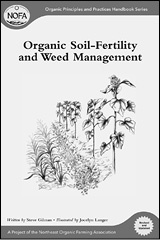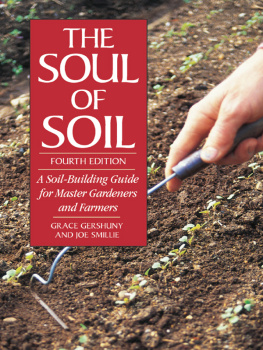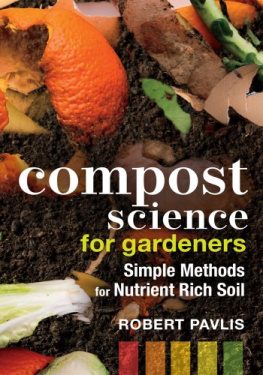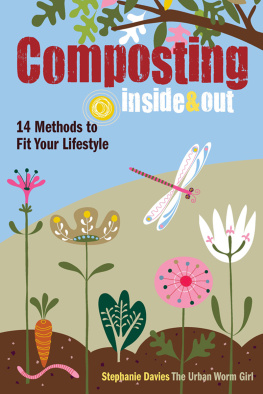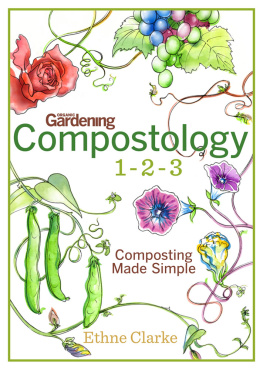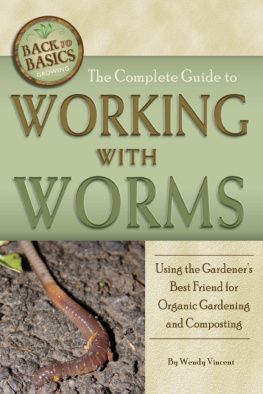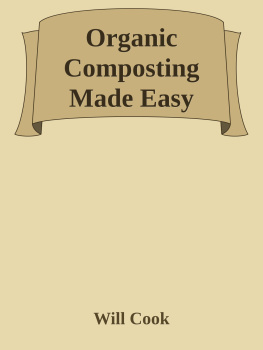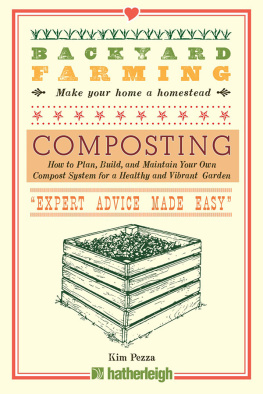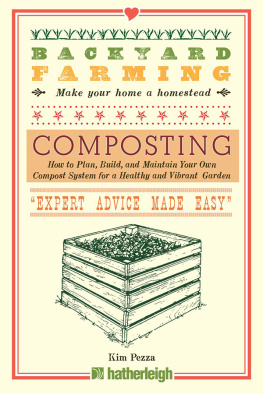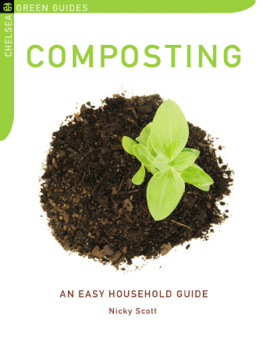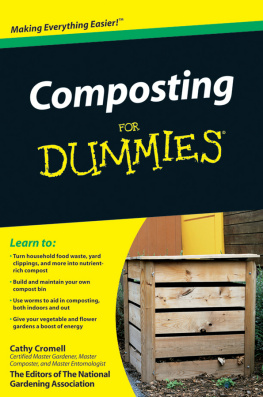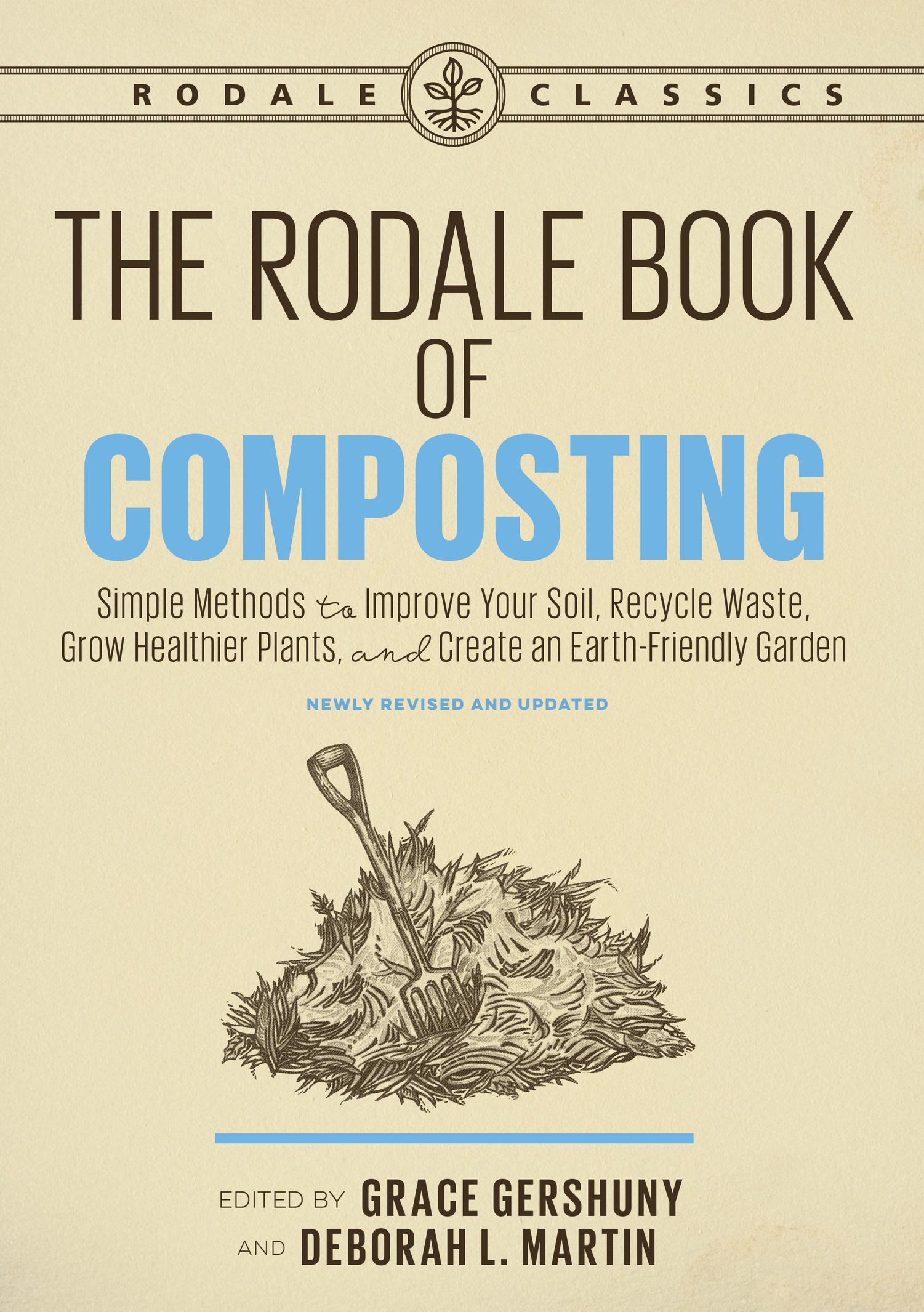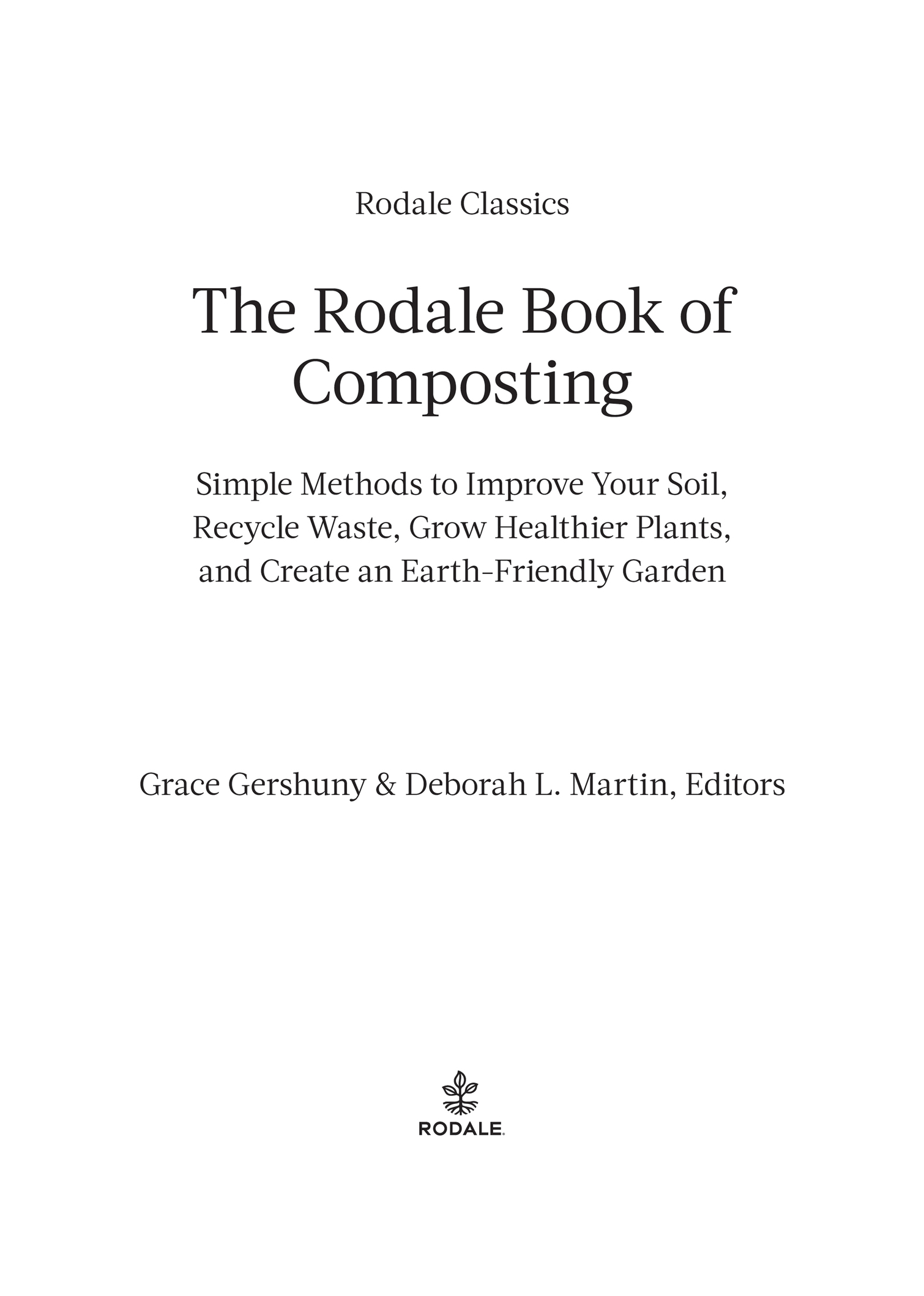Copyright 1979, 1992 by Rodale, Inc.
Copyright 2018 by Hearst Magazines, Inc.
All rights reserved.
Published in the United States by Rodale Books, an imprint of the Crown Publishing Group, a division of Penguin Random House LLC, New York.
RODALE and the Plant colophon are registered trademarks of Penguin Random House LLC.
Library of Congress Cataloging-in-Publication Data is available upon request.
INTRODUCTION
In a recent visit to the Bronx Zoo, I learned to my surprise that composting, far from being an ingenious human invention, is actually known to be performed instinctively by a species of animal. The Australian brushturkey (Alectura lathami) is a common, widespread species of mound-building bird native to eastern Australia. The males of this species build mounds of fresh organic material in which multiple females, attracted by the industriousness displayed and ready to mate, lay their enormous eggs. The heat of the decomposing organic material then serves to incubate the eggs, as the diligent male monitors the temperature by sticking his beak into the mound and adjusts it by adding or removing material to maintain the optimum level of warmth. Apparently, the warmer the temperature, the higher the number of females that eventually hatch out, full fledged and ready to fly away.
This was a fitting bit of knowledge to acquire after wrapping up revisions to the 1992 edition of the Rodale Book of Composting. First published in 1967 as The Complete Book of Composting, the book was originally authored by J. I. Rodale. It was an honor to have the opportunity to help create a more compact and useful version of this classic in 1992, and when I was asked to revise and update the book again for the edition you have in your hands, I could hardly decline.
The pace of change in the world has seemed to accelerate since 1992, when the internet was yet to dominate the world of publishing and information sharing. While compost is a timeless substance, scientific understanding and practical applications of compost and the composting process have also expanded considerably in that time. Rapidly growing public awareness of the importance of recycling organic materials to build healthy soil and healthy humans has translated into proliferating public policies that support organics recycling. Lets hope that the speed of change for the bettermore organic production and household compostingoutpaces change for the worseincreased climate chaos and pollution.
Some of the changes that have helped compost assume a greater level of importance in the United States include:
Organic food and fiber has become a $50 billion industry in the United States, with a wide range of organic products available to consumers everywhere. As a result, the public is increasingly aware of environmental and health-related problems of the existing food system.
Organic methods, including making and using compost, are now considered the best practices in farming and gardening by many farmers, researchers, and educators. As land under organic management increases, so too does stable soil organic contenta key strategy for sequestering atmospheric carbon and countering climate change.
In 2017 curbside organics collection programs were accessible to more than 5 million residents in hundreds of communitiesnearly doubling the number in 2014.
Urban farming and community gardening have taken root in diverse communities, from Boston to Seattle, as well as heartland cities like Milwaukee, Detroit, and Cleveland. Food justice activists recognize that compost and organic waste recycling are key to making fresh, healthy produce available to all.
In revising this classic book, we have sought to keep as much as possible of the interesting and useful information that never goes out of date. At the same time we have trimmed some of the information no longer relevant to todays environmental landscapes and updated information about soil biology, innovative composting methods, and state and local policies to promote wider use of composting for organic recycling and soil improvement. Some new material you will find in this edition includes:
Emphasis on the historical development of composting knowledge through indigenous cultures in different environments
More attention to the importance of fungi and how to promote increased fungal growth in compost
The emergence of community composting programs throughout the country
Emphasis on avoiding soil disturbance when applying and incorporating compost
Diverse methods and technologies for farm-scale and municipal composting
Updated regulatory considerations with the advent of USDAs National Organic Program
A new appendix with expanded resources for information specific to your community, with websites to help you find any compost-related needs. Also included are a few classic books related to composting and organic soil management.
With a plethora of great information about how to build compost structures and practical composting techniques available on the internet, we have eliminated the more elaborate plans for building compost structures at home. The internet is also the best place to find sources for compost tools and supplies, and a wide range of compost-related gadgets and equipment can easily be found at home and garden supply centers throughout the country.
The potential to protect our soil and water and restore nutrition to our food through learning to compost and working with our neighbors to recycle food and yard wastes can inspire hope in a time when threats to the health of our planet and the public loom large. With this in mind, please apply this knowledge to the extent you are able, and enjoy witnessing the magical transformation of garbage into gold.
Grace Gershuny
November 2017
COMPOSTING THROUGHOUT HISTORY
Composting is, in broadest terms, the biological reduction of organic wastes to humus. Whenever a plant or animal dies, its remains are attacked by soil microorganisms and larger soil fauna and are eventually reduced to an earthlike substance that forms a beneficial growing environment for plant roots.
This process, repeated continuously in endless profusion and in every part of the world where plants grow, is part of the ever-recurring natural process that supports all terrestrial life. The entire composting process is difficult to contemplate in its full dimensions. Lets just say that compost and composting are, like water and air, essentials of life.
A different, more common, definition of compost requires human participation in the process. The word


